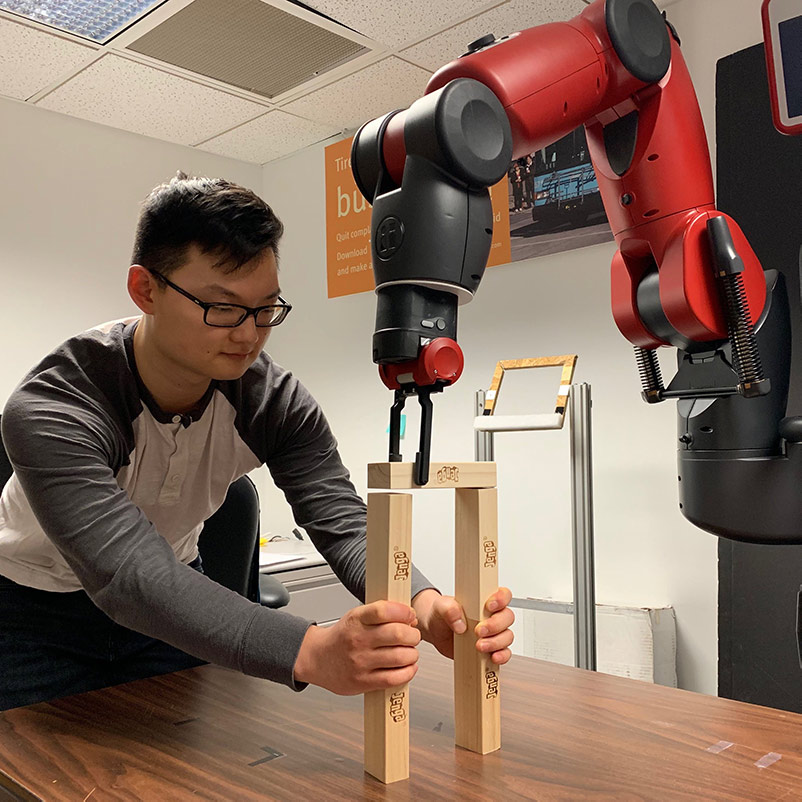Effective task delegation within a team requires each member to (1) understand task objectives, (2) estimate task feasibility, and (3) convey a reason for the acceptance or refusal of a task. Such self-assessment by robots will be critical to successful human-robot collaboration that maximizes the potential of each member while being robust to unforeseen failures. We are accordingly developing methods that will allow robots to quantify and convey their proficiency at a particular task during (in situ), after (post hoc), and before (a priori) execution.
Our current research directions include developing effective human-in-the-loop training (Pallavi Koppol), visually assessing the structural stability of scenarios (Sarthak Ahuja), and using conveying a notion of confidence of proficiency through interval estimation (Michael Lee).
